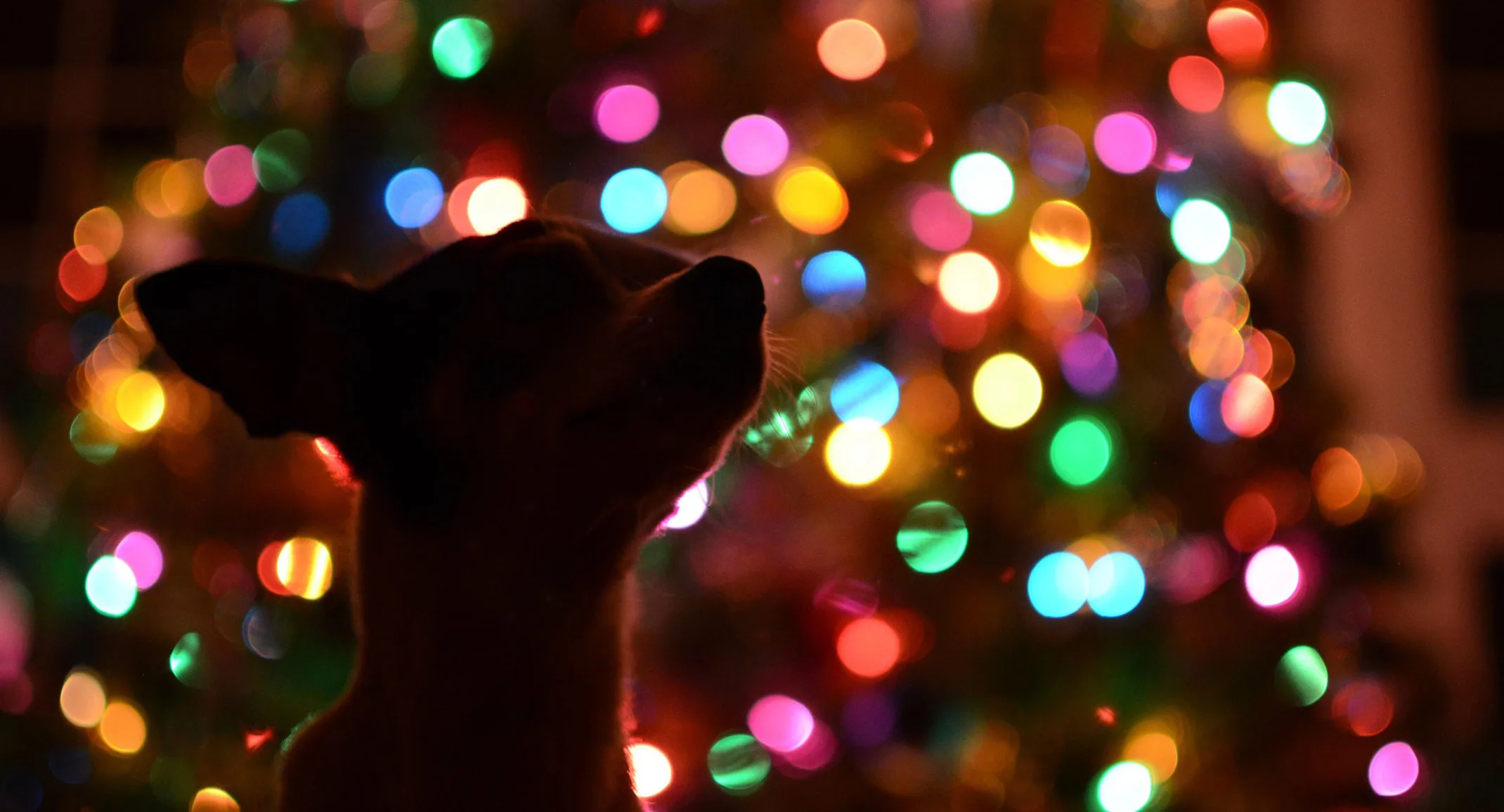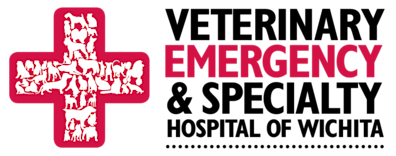Holiday Pet Safety Tips
Safety Tips

The holidays are upon us, and nothing can spoil the festivities like an emergency trip to the veterinary hospital. Veterinary Emergency & Specialty Hospital of Wichita wants you and your pets to enjoy your traditions, while staying safe, by providing some tips to avoid common holiday pet disasters. Always keep our number in an easy-to-find and know where our hospital is located in case of an emergency:
Veterinary Emergency & Specialty Hospital of Wichita (open 24/7/365) Phone (316) 262-5321 Address 727 S Washington, Wichita
Another important number to have on-hand is ASPCA Poison Control Hotline 1 (888) 426-4435.
SAFE DECORATING TIPS
Dogs are opportunistic, typically keeping things out of reach seems to do the trick. However, during the holidays, there are new temptations. Make this holiday season drama free with these learned-from-experience tips.
TREE SAFETY
IN GENERAL, PLACE DECORATIONS ON HIGH BRANCHES OR PUT A GATE UP AROUND THE TREE TO KEEP YOUR PET SAFE. YOU MAY ALSO CONSIDER ANCHORING YOUR TREE SO IT DOESN’T GET KNOCKED OVER.
Ornaments: Glass ornaments can cause lacerations while popular salt dough ornaments are toxic to dogs. Tinsel and ribbon: If ingested, tinsel can become bound in the intestinal track and require surgical removal. Tree lights: Those twinkling lights are a thing of beauty but could pose the threat of electric shock if the wires become torn and chewed through. Artificial snow: Indoor snow may look magical, but the fake stuff on trees and wreaths may contain highly toxic chemicals
BE MINDFUL OF HOLIDAY GOODIES
DO NOT UNDERESTIMATE A HUNGRY DOG’S DETERMINATION WHEN DELICIOUS FOOD IS ALL AROUND! KEEP PETS AWAY FROM THESE DANGEROUS FOODS.
Fruits & Veggies: Avoid garlic, onions, leeks, scallions, chives, and shallots as they are toxic to both cats and dogs. Grapes, raisons, and currents are highly toxic as well. Alcohol: Keep eggnog and other alcoholic beverages up and away from reach. Nuts: Absolutely do not feed pets macadamia nuts. Also avoid black walnuts, raw cashews, English walnuts, and pecans. Candy: Chocolate, especially dark or baker’s chocolate contains theobromine and may cause devastating effects. Sugar-free candy and desserts that contain Xylitol can be lethal even in small doses. Bones and Strings: Bones can cause intestinal upset, blockages or splinter once chewed. Keep pets away from meat-soaked string around roasts, and poultry as they can become bound in the intestines. Caffeine: The holidays can be exhausting and although you may need an extra cup of Joe, be sure to keep your cats and dogs clear of caffeinated beverages, including coffee grounds. Garbage and Countertops: During and after food prep, counters and trash cans are often filled with cooked bones, scraps, plastics and other dangers. Keep counters clear if your pet can reach, and put a lid on the trash.
AVOID DECORATION DISASTERS
DECORATING FOR THE HOLIDAYS CAN BE A JOY WITH THESE SAFETY TIPS.
Candles: Be cautious of open flames, if you leave the room, put the candle out. A wagging tail or curious cat can easily knock it over. Modern flameless candles mimic the flickering flame and are pet safe. Plants: Toxicities in common holiday plants can cause mild to severe effects. It’s best to avoid amaryllis, daffodils, poinsettias, holly, and mistletoe. Try pet friendly silk or plastic plants instead. Stockings: If your pet can jump or otherwise gain access to stockings, avoid filling them with items that could be toxic, easily swallowed, or choked on.
THE AVERAGE COST OF TREATING COMMON HOLIDAY EMERGENCIES: Chocolate Toxicity - $500-2000 Other Toxicity - $500-5000 Fracture repair - $2500-450 GI foreign body - $2500-4000 Pancreatitis - $1000-2500
